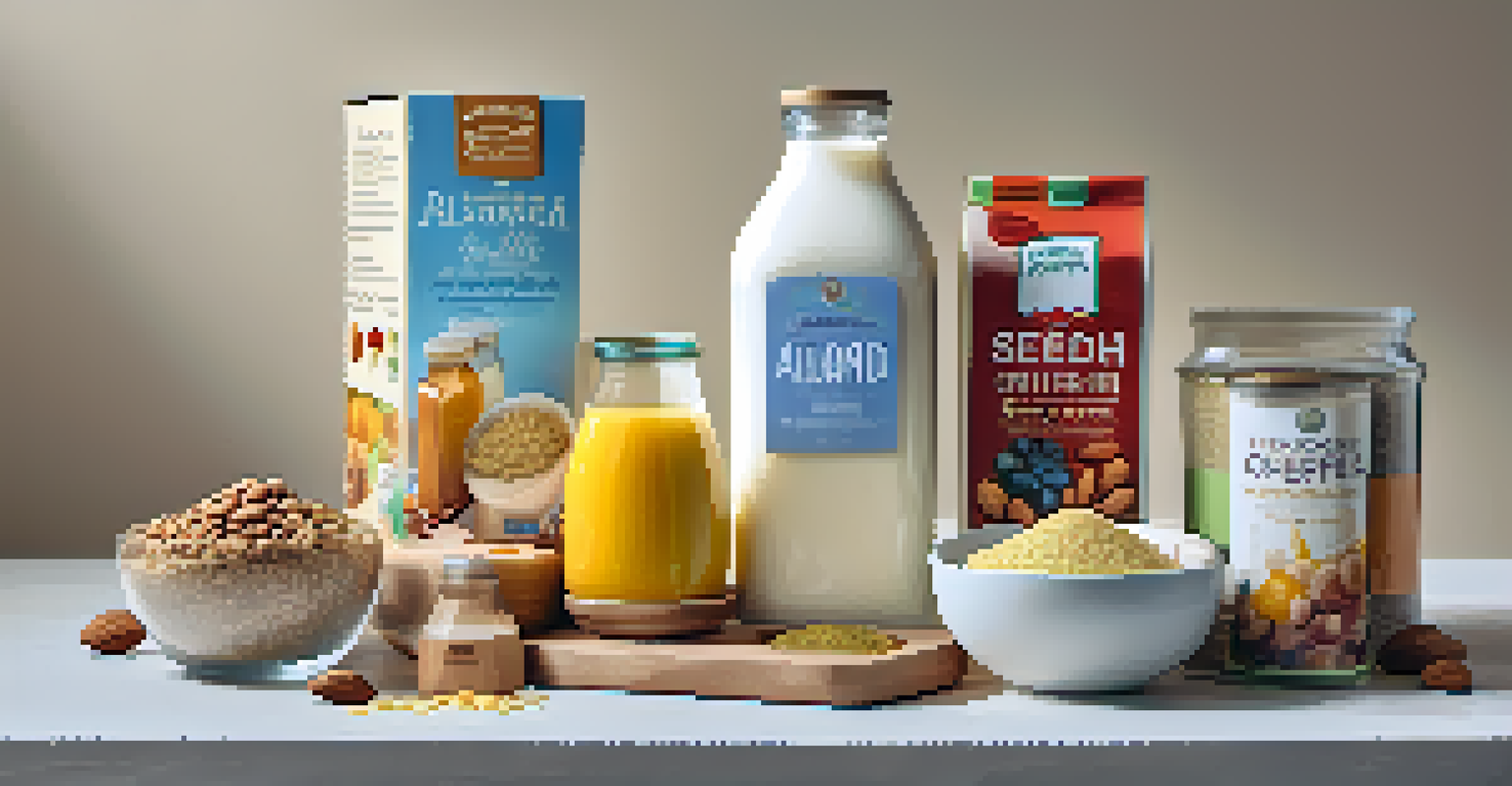The Importance of Vitamin B12 for Vegetarian Diets Explained

What is Vitamin B12 and Why Do We Need It?
Vitamin B12, also known as cobalamin, is a crucial nutrient that supports various bodily functions, including red blood cell formation and neurological health. It plays a key role in DNA synthesis and helps maintain the health of nerve cells. Without adequate B12, your body can face serious health issues, including anemia and cognitive impairments.
A vegetarian diet can be healthy, but it requires careful planning to ensure nutritional needs are met, especially for Vitamin B12.
One of the unique aspects of Vitamin B12 is that it's primarily found in animal products, which makes it particularly challenging for those following vegetarian or vegan diets. While meat, dairy, and eggs are excellent sources, individuals who abstain from these foods may not get enough of this essential vitamin. This is why understanding B12 is especially important for vegetarians.
In fact, the body requires only a small amount of B12, but even a slight deficiency can lead to significant health complications. So, ensuring you get enough of this vitamin is crucial, especially if you're following a plant-based lifestyle.
Sources of Vitamin B12 for Vegetarians
Vegetarians have several options when it comes to obtaining Vitamin B12, even if they don't consume meat. Dairy products like milk, yogurt, and cheese are rich in B12, making them great choices for lacto-vegetarians. Eggs also contain a good amount of B12, providing another avenue for those who consume these foods.

For vegans or those who avoid all animal products, fortified foods can be a lifesaver. Many plant-based milks, breakfast cereals, and nutritional yeast are fortified with B12, making them excellent alternatives. Always check the labels to ensure you're getting the added B12, as not all products contain it.
Vitamin B12 is essential for health
Vitamin B12 supports red blood cell formation, neurological health, and DNA synthesis, making it crucial for overall well-being.
Another option for those who struggle to get enough B12 from food sources is supplementation. Vitamin B12 supplements are widely available and can help fill any gaps in your diet. It's best to consult a healthcare provider to determine the right dosage and form for your needs.
Signs of Vitamin B12 Deficiency
Recognizing the signs of a Vitamin B12 deficiency is crucial for maintaining good health, especially for vegetarians. Common symptoms include fatigue, weakness, and pale skin, which can often be mistaken for other conditions. More severe symptoms can involve neurological issues such as numbness, tingling, or balance problems.
Vitamin B12 is essential for brain health, and its deficiency can lead to severe neurological issues.
Cognitive changes can also occur, with some individuals experiencing memory loss or difficulty concentrating. If you notice these symptoms, it's essential to consult a healthcare professional who can conduct a blood test to check your B12 levels. Early detection is key to preventing long-term damage.
It's worth noting that some people may not exhibit symptoms right away, especially if they are only mildly deficient. Regular check-ups can help keep track of your B12 levels and ensure you are meeting your nutritional needs.
How Vitamin B12 Supports Energy Levels
One of the most significant benefits of Vitamin B12 is its role in energy metabolism. This vitamin is involved in converting the food you eat into energy your body can use. Insufficient B12 levels can lead to feelings of fatigue and lethargy, making it challenging to stay active and engaged in daily life.
B12 also helps in the formation of red blood cells, which transport oxygen throughout the body. Proper oxygen levels are essential for energy production, and a lack of red blood cells can lead to anemia, further contributing to fatigue. So, maintaining sufficient B12 levels is key to feeling your best.
Vegetarians can find B12 sources
Dairy products, eggs, and fortified foods provide essential Vitamin B12 for vegetarians, ensuring they meet their nutritional needs.
Incorporating B12-rich foods into your diet can help boost your energy levels and improve overall well-being. Whether through dairy, eggs, fortified foods, or supplements, ensuring you have adequate B12 can make a noticeable difference in how you feel.
The Connection Between B12 and Mental Health
Vitamin B12 is not just important for physical health; it also plays a significant role in mental well-being. Research shows that adequate B12 levels are associated with a lower risk of depression and cognitive decline. This vitamin helps in the production of neurotransmitters, which are essential for regulating mood and emotional health.
Deficiency in B12 has been linked to increased symptoms of anxiety and depression. If you're a vegetarian, it's crucial to monitor your B12 levels to support not only your physical health but also your mental health. A balanced diet and proper supplementation can help combat these risks.
Taking care of your B12 needs can lead to improved cognitive function and emotional resilience. Remember, a healthy mind and body go hand in hand, and Vitamin B12 plays a vital role in maintaining that balance.
Tips for Maintaining Adequate B12 Levels
To ensure you are getting enough Vitamin B12, start by incorporating a variety of B12-rich foods into your vegetarian diet. Regularly consuming dairy products, eggs, and fortified foods can help keep your levels up. Planning your meals around these sources can make a significant difference.
Consider keeping a food diary to track your B12 intake, especially if you're new to vegetarianism. This practice can help you identify any gaps in your diet and make necessary adjustments. Additionally, discussing your dietary habits with a healthcare provider can provide personalized recommendations.
B12 deficiency affects mental health
A lack of Vitamin B12 can lead to fatigue, cognitive decline, and increased symptoms of anxiety and depression.
Lastly, don't hesitate to consider supplementation if you're concerned about your B12 levels. Whether through pills, sublingual tablets, or injections, there are various options available. Taking proactive steps to maintain your B12 levels can lead to a healthier and more vibrant life.
Conclusion: Embracing a Balanced Vegetarian Diet
In conclusion, understanding the importance of Vitamin B12 is vital for anyone following a vegetarian diet. While it may seem daunting at first, there are plenty of ways to ensure you're meeting your B12 needs. By incorporating a variety of foods and being mindful of your intake, you can thrive on a plant-based diet.
It's essential to be proactive about your health. Regular check-ups, dietary planning, and supplementation can make all the difference in preventing deficiencies. Remember, knowledge is power, and being informed about your nutritional needs is the first step towards a healthier lifestyle.

So, whether you're a seasoned vegetarian or just exploring plant-based options, don’t overlook the importance of Vitamin B12. Embrace the journey, and enjoy the benefits of a balanced, nutritious diet.